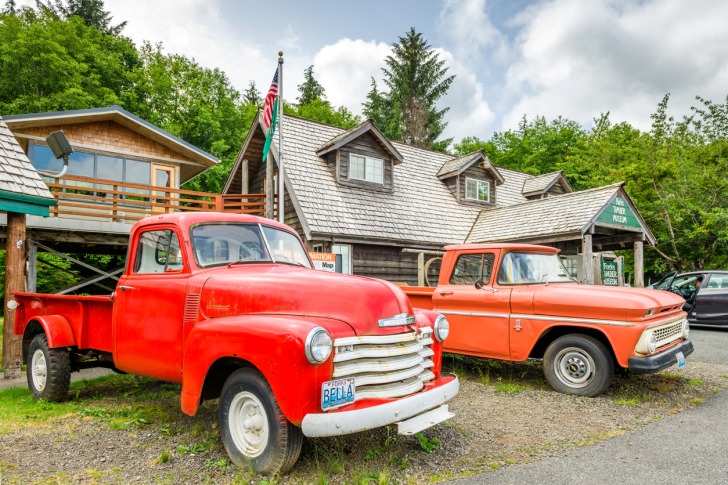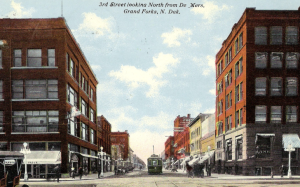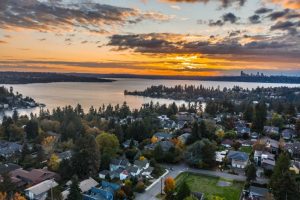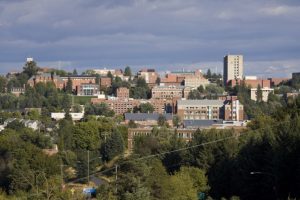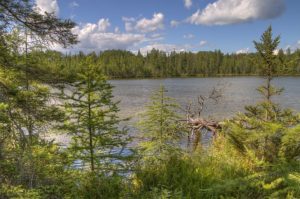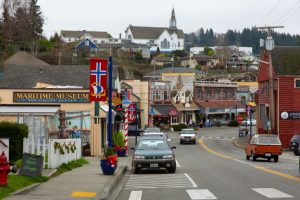 Washington : Safety by City
Washington : Safety by City
- Anacortes
- Bainbridge Island
- Bellevue
- Diablo
- Forks
- Gig Harbor
- Kennewick
- Kent
- Kettle Falls
- Longview
- Mercer Island
- Moses Lake
- Neah Bay
- Ocean Shores
- Olympia
- Port Angeles
- Port Townsend
- Poulsbo
- Pullman
- Quinault
- Renton
- San Juan Islands
- Seabrook
- Seattle
- Sequim
- Snoqualmie
- Spokane
- Spokane Valley
- Tacoma
- Walla Walla
- Wenatchee
- Westport
- Yakima
“In the Olympic Peninsula of northwest Washington State, a small town named Forks exists under a near-constant cover of clouds.”
Does that sentence sound familiar?
It’s from the Twilight Saga.
That’s how Bella explained Forks, but now it’s our turn to pull facts from this popular fiction novel series.
Bella was right when she said Forks gets more rain than any other city in the contiguous United States.
In fact, it’s one of the tourism branding slogans.
The land was first lived off of by the Quileute Native Americans.
Settlers arrived in the 1860s, and soon, the timber industry drove the economy.
The town’s name reflects its location at the confluence of the Bogachiel, Calawah, and Sol Duc rivers.
The establishment of the Olympic National Park in 1938 brought increased attention to the area’s natural beauty.
The town was established seven years later and now has a population of just under 3,400 people.
With the logging industry dying down and the hype of Twilight fading, the Forks’ economy is now also reliant on corrections jobs for the two prisons nearby.
If the coastal charm of the Olympic Peninsula beckons you here, La Push is just 20 minutes away.
We know that the risks here won’t include the werewolves, vampires, or the Volturi, but are there things to worry about when visiting this fabled town?
Let’s explore.
Warnings & Dangers in Forks

OVERALL RISK: LOW
The risk is low in Forks, with low crime rates and a lot of things to do. However, I can't stress enough how much it rains here.

TRANSPORT & TAXIS RISK: LOW
Review the options through Clallam Transit, which includes a shared on-demand ride service in Forks. Don't expect a lot of taxis and rideshares here, as it's a small town surrounded by rainforest. Rental cars offer the most flexibility.

PICKPOCKETS RISK: LOW
Forks police don't release granular details about crime data, but I can tell you that the entire county has had just four pickpockets or purse snatchings in the past five years. The risk is low, but don't let that cause you to let your guard down.

NATURAL DISASTERS RISK: MEDIUM
This is a medium risk due to the onslaught of rain that falls throughout the year, with the wettest season being November through April. Flooding, flash flooding, landslides, and mudslides are possible. Earthquakes and tsunamis are possible on the coast.

MUGGING RISK: LOW
Over the past decade, the county has gotten anywhere from three to seven robberies a year. Only one in five are highway robberies. The risk is low.

TERRORISM RISK: LOW
This is another low risk as there's no hard target nearby, and the town is surrounded by wilderness.

SCAMS RISK: LOW
The risk of a scam is low here, but you can review the Clallam County Sheriff's Office website and social media sites to see if there are new scams before your visit. Learn about common scam tactics on the Better Business Bureau website.

WOMEN TRAVELERS RISK: LOW
Women love visiting Forks because of the Twilight connection, and it's a great place for all generations. Solo travelers should aim to stick with tour groups or guides since there are limited mobile connections outside the town.

TAP WATER RISK: LOW
The U.S. has strict standards for tap water per the Safe Water Drinking Act. Communities are required to provide a Water Quality Report (Consumer Confidence Report) once a year by July 1. The latest water quality report in Clallam County shows no violations and full compliance.
Safest Places to Visit in Forks
Forkswa.com is the official tourism site for Forks.
The Clallam County website also offers a list of things to do.
Additionally, Olympicpeninsula.org covers the region, including Forks.
I won’t bury the lead if you’re a Twilight fan looking for information.
The Forever Twilight festival is held on whatever weekend is closest to September 13, as that was Bella’s birthday.
The event runs for four days.
If you aren’t a Twilight fan, this would be the time one weekend of the year to avoid visiting Forks.
There are three museums in Forks.
The Forks Timber Museum gives a historical look at the logging history of this region with the tools used since the 1860s.
John’s Beachcombing Museum showcases the oddities and accessories that end up at the Olympic peninsula beaches.
You’ll see buoys, signs, ship parts, and much more.
It also gives you a concerning look at how much plastic ends up in our oceans.
The Collection is a museum that houses many of the props and outfits used in the Twilight movies.
Cameras are allowed, so get ready to take a lot of selfies.
Logging and Mill Tours are offered from May through August, with a three-hour adventure where you’ll learn about modern forestry and see workers in the woods.
It’s also much safer to let an expert drive you down the narrow logging roads.
About 20 minutes from Forks is La Push, a small town on the Quileute Indian Reservation in Washington.
Visitors can enjoy whale watching, hiking, and exploring tide pools.
The waves here can be massive and bring out surfers, but it’s not an experience for beginners.
Choose from three beaches in La Push and Rialto Beach in Mora.
NOTE:
All beaches except First Beach are part of Olympic National Park.
Expect to walk at least a mile out and back to get to the beach.
Places to Avoid in Forks
You don’t need to be concerned about dangerous parts of town or bad neighborhoods here.
The biggest thing to avoid is going onto private property.
Even the Swan House, where Bella lived in the Twilight movies, is private property.
You can take a photo in front of it, but you can’t go onto the property or knock on the door.
It is currently used as a vacation rental.
Don’t risk driving through flooded roadways, even if you don’t think the water is that deep.
Many sections of the town are prone to flooding.
Big storms like atmospheric rivers can create landslides that block roads.
If you look up videos of a storm in December 2023, you’ll see how dangerous the flooding can be.
If water starts to surround the place where you are staying, evacuate immediately.
Do not hope for the best.
Finally, avoid carrying an umbrella if you want to blend in with the crowds.
While it might seem obvious to bring an umbrella to the rainiest city in the U.S., folks here don’t use them.
Safety Tips for Traveling to Forks
- Forks has a police department but is habitually short-staffed. The phone number is (360) 374-2223 if you have specific safety questions, but you’ll likely have to leave a message and wait for a callback. You can also follow the Clallam County Sheriff’s Office on Facebook @clallamcountysheriff to get information about the region. They provide backup law enforcement for Forks.
- Sign up for emergency alerts through the Clallam County Alert System. This is important as the alerts cover severe weather, public safety threats, road closures and missing people.
- Buy a NOAA battery-powered radio and extra batteries to use when you’re out of mobile phone range. This could be the only way to get critical weather and safety information.
- If you have information about a crime or want to submit a tip, you can email tips.fpd@forkswashington.org or call (360)374-5311. It’s important to help any time you can since this community struggles to keep law enforcement officers.
- Visiting the coastline means going onto tribal land. La Push and the surrounding area is part of the Quileute Nation. The tribe governs the sovereign land and not the local or state authorities. Review the Quileute National website for proper etiquette when visiting their home.
- Anglers need a license from the Washington Department of Fish & Wildlife. There are licenses for fishing, clamming, freshwater, saltwater, etc. Be sure you get the right permit for the activity you plan to do.
- Before you even think about clamming, check the Marine Biotoxins website section of the Washington State Department of Health. The shellfish on the coast can ingest the harmful algae blooms and bacteria that can prove fatal to people. Warnings and bans are put in place when the toxin is discovered in a certain region. There is no antidote if you do consume the biotoxin.
- The coastline is prone to tsunamis, which aren’t that frequent, but a big one would still be catastrophic. You can’t always expect there will be enough time to wait for a tsunami warning if an earthquake hits off the coastline. Know the evacuation routes and seek higher ground immediately.
- Even with all the rain here in a year, burn bans can still be put into place due to wildfire dangers. Check the burn restrictions during your visit, as it can impact your campsite or beach bonfire.
- Very few roads in this region have streetlights outside the small towns. The roads are usually two-lanes, winding, and extremely dark. If you aren’t good at driving at night, plan to only drive during daylight hours. Always check the Washington Department of Transportation maps to see if there are flooding, closures, construction, or detours.
So... How Safe Is Forks Really?
Getting crime data from Forks isn’t easy.
The latest data provided goes back to 2019 when an average of 11 crimes happened.
With a small population, even with a few violent crimes, the crime rate is 15% lower than the national average.
Then there’s the issue that, since 2019, the staff of half a dozen police officers has been whittled down to one – the police chief.
There’s a bigger story here about compensating law enforcement fairly.
The average police officer position in Forks pays a dollar less an hour than a new hire at one of the correction centers.
That doesn’t mean Forks is a lawless town.
The city and county sheriff’s office team up through an agreement that allows off-duty deputies to pick up shifts in Forks when needed.
What this all means is that I can’t give you exact crime data for recent years in Forks.
However, historically, crime hasn’t been a problem here.
Even in 2018 and 2019, about one theft happened per week.
Searching through pages of news headlines, I couldn’t find more than a handful of cases that even involved Forks.
Most searches take me to Grand Forks, North Dakota or The Forks in Maine.
Between 2012 and 2019, the total number of crimes in Forks was 75 on the low end and 130 on the high end.
You shouldn’t have to worry about crime here, but reporting suspicious activity is the best way to help keep the community safe.
The rest of the safety risks, like wilderness, wildlife, and water risks, are largely dependent on you following the best safety practices.
How Does Forks Compare?
| City | Safety Index |
|---|---|
| Forks | 85 |
| New York City | 67 |
| Detroit | 56 |
| San Diego | 67 |
| Miami | 55 |
| Honolulu | 65 |
| Chicago | 65 |
| Cordoba (Argentina) | 61 |
| Toronto (Canada) | 81 |
| Melbourne (Australia) | 80 |
| Montreal (Canada) | 81 |
| Sydney (Australia) | 80 |
| Santiago de Chile (Chile) | 71 |
Useful Information

Visas
All international visitors need either a visa defining the purpose of the trip (tourist, work, school, etc.) or a visa waiver. Start the process using the Visa Wizard module on the U.S. State Department website. Also, your passport must be valid for at least six months after your trip, or you’ll need to apply for a new one.

Currency
Only the U.S. Dollar (USD) is accepted in the United States. International airports usually have a currency exchange desk on site, while regional airports won’t. Your home bank offers the lowest fees. For those using credit cards, check to see if there’s a foreign transaction fee. Credit cards, not debit cards, offer the best fraud protection.

Weather
You need to bring rain gear when visiting Forks, and not just a rain jacket. With more than 10 feet of rain a year and highs in the mid-40s during the rainy season, you need insulated layers as well. Bring rain boots, hiking boots, waterproof socks, and waterproof pants. Bug spray is also needed year-round. Also, summers won't get much above the mid-70s for highs.

Airports
Seattle-Tacoma International Airport, approximately 140 miles from Forks, is the nearest major international airport, offering a wide range of domestic and international flights. That's about a four-and-a-half-hour drive. Port Angeles is about 55 miles away and does have an airport, but it hosts mostly private and business jets.

Travel Insurance
Travel insurance protects the cost of baggage loss/theft, delays, cancelations, and emergency health issues. Rental car insurance should include roadside assistance and uninsured motorist coverage. Comprehensive insurance offers the best peace of mind.
Forks Weather Averages (Temperatures)
Average High/Low Temperature
| Temperature / Month | Jan | Feb | Mar | Apr | May | Jun | Jul | Aug | Sep | Oct | Nov | Dec |
|---|---|---|---|---|---|---|---|---|---|---|---|---|
| High °C | 8 | 10 | 12 | 14 | 18 | 20 | 22 | 23 | 21 | 16 | 10 | 7 |
| Low °C | 1 | 1 | 2 | 3 | 6 | 8 | 10 | 10 | 8 | 6 | 3 | 1 |
| High °F | 46 | 50 | 54 | 57 | 64 | 68 | 72 | 73 | 70 | 61 | 50 | 45 |
| Low °F | 34 | 34 | 36 | 37 | 43 | 46 | 50 | 50 | 46 | 43 | 37 | 34 |
Washington - Safety by City
| City | Safety Index |
|---|---|
| Anacortes | 82 |
| Bainbridge Island | 85 |
| Bellevue | 84 |
| Diablo | 78 |
| Forks | 85 |
| Gig Harbor | 75 |
| Kennewick | 40 |
| Kent | 42 |
| Kettle Falls | 78 |
| Longview | 82 |
| Mercer Island | 82 |
| Moses Lake | 46 |
| Neah Bay | 77 |
| Ocean Shores | 79 |
| Olympia | 57 |
| Port Angeles | 72 |
| Port Townsend | 81 |
| Poulsbo | 79 |
| Pullman | 79 |
| Quinault | 82 |
| Renton | 70 |
| San Juan Islands | 83 |
| Seabrook | 78 |
| Seattle | 55 |
| Sequim | 77 |
| Snoqualmie | 78 |
| Spokane | 74 |
| Spokane Valley | 62 |
| Tacoma | 38 |
| Walla Walla | 72 |
| Wenatchee | 80 |
| Westport | 78 |
| Yakima | 62 |
